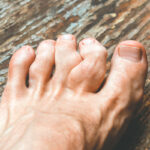Experts addressed how education and follow-up for patients with gout can improve disease management and highlighted the need for a better construction of gout remission.

Pegloticase Plus Methotrexate Effective for Uncontrolled Gout
The 12-month results of the MIRROR study show pegloticase co-administered with methotrexate is beneficial for patients with uncontrolled gout.

Treat to Target Lowers the Risk of Fracture in Patients with Gout
Using data from the U.K.’s Health Improvement Network, a primary care database, Wei et al. examined whether urate-lowering therapy (ULT) in a treat-to-target approach for patients with gout reduces the risk of fracture.
Tigulixostat Promising for Patients with Gout & Hyperuricemia
In a dose-finding, clinical trial, Terkeltaub et al. examined the safety and efficacy of tigulixostat, a nonpurine xanthine oxidase inhibitor, for lowering the serum urate levels of patients with gout and hyperuricemia.

A Unique Breed: RheumMadness 2022 Dalmatian Urate Scouting Report
Dalmatians have defects in the renal tubular reabsorption of filtered urate and the hepatic conversion of uric acid to allantoin that may provide unique insights into uric acid homeostasis, with implications for the treatment and management of gout.

Insight into Achieving & Maintaining Target Serum Urate Levels in Gout Patients
A recent study advances the understanding of factors associated with a target serum urate level of 6 mg/dL or less. Researchers found such factors as having a rheumatologist as the main provider of gout care contributed to achieving and maintaining this outcome. However, the presence of co-morbidities lowered a patient’s chances for achieving the target serum urate level, even with allopurinol use…
Genes, Not Diet, Main Determinant of Urate Levels
NEW YORK (Reuters Health)—Heredity plays a substantially larger role than diet in determining serum urate levels, according to new findings in BMJ. Nearly 25% of the variation in serum urate is attributable to common genetic variants, while dietary pattern explained less than 1%, Dr. Tanya J. Major of the University of Otago in Dunedin, New…